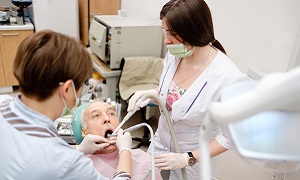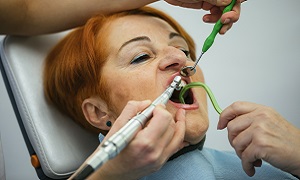Best Doctors in India for Root Canal Treatment
Best Hospitals in India for Root Canal Treatment
- City: Mumbai, India
Hospital Highlights:
- Fortis Hiranandani hospital was established in 2007.
- The hospital is an advanced tertiary care, multi-specialty hospital equipped with 149 beds.
- The hospital is equipped with a super ICU to provide emergency medical care to critically ill patients.
- The hospital is NABH accredited.
- The critical care facility in the hospital is augmented with the state-of-the-art facilities that facilitate speedier diagnosis and efficient monitoring.
- The hospital provides specialty medical services in cardiology, orthopedic science, pediatric science, neurology, diabetic care, urology, nephrology, ENT, obstetrics, gynecology, cosmetic surgery, bariatric surgery, neuro and spine care.
- City: Gurugram, India
Hospital Highlights:
- W Pratiksha Hospital, Gurugram, is one of the best hospitals in the NCR region. It is also a top hospital in India for IVF. Since its inception, the hospital has performed over 5500 successful IVFs. The hospital also specializes in gynecology.
- With over 20 years of experience in providing quality healthcare, the hospital is known as one of the most trusted and valued health providers in India.
- Equipped with world-class medical facilities and advanced technology, the hospital’s doctors and clinicians also have a track record of delivering excellent results. The hospital is also known for focusing on preventive well-being as much as on curative treatment.
- The hospital has earned the trust of its patients, by providing the best available treatments at affordable costs.
- City: Gurugram, India
Hospital Highlights:
- Paras hospital was established in 2006 and is the 250 bedded flagship hospital of Paras Healthcare.
- The is supported by a team of doctors of international and national repute.
- The hospital is NABH accredited and also the first hospital in the region to have a NABL accredited laboratory.
- The hospital provides specialty medical services in around 55 departments including Neurosciences, Joint Replacement, Mother & Child Care, Minimal Invasive Surgery, Gynecology and Obstetrics, Ophthalmology, Dermatology, Endocrinology, Rheumatology, Cosmetic and Plastic surgery.
- The hospital is equipped with state-of-the-art technologies.
- City: Kolkata, India
Hospital Highlights:
- Fortis Hospital, Anandapur, Kolkata is a world-class super-speciality equipped with the latest technologies in the medical world.
- The hospital is NABH accredited.
- This state-of-the-art facility specializes in cardiology and cardiac surgery, urology, nephrology, neurosciences, orthopaedics, digestive care, emergency care and critical care.
- The hospital, governed by integrated Building Management System (IBMS), has a pneumatic chute system, for quick vertical and horizontal transportation between floors, facilitating speedy transfer of patient specimens, documents, reports, and medicines to the concerned departments.
- The hospital also has a nephrology department with over 28 advanced dialysis units.
- City: Mumbai, India
Hospital Highlights:
- SL Raheja hospital is a 140-bed multi-specialty tertiary care hospital that is being managed by Fortis Healthcare Ltd.
- The hospital is a benchmark in healthcare and medical facilities in the neighborhood of Mahim & the western suburbs.
- L.Raheja Hospital, Mahim has one of the most effective ICU and Casualty care services.
- The hospital provides specialty medical services in Cardiology, Oncology, Neurology, Orthopedics, Mother & Child Care, and in Diabetes.
- City: Mumbai, India
Hospital Highlights:
- Wockhardt Hospitals were established in the year 1973, originally called First Hospitals and Heart Institute.
- Wockhardt Hospitals are super specialty health care networks in India, nurtured by Wockhardt Ltd, India’s 5th largest Pharmaceutical and Healthcare company.
- Wockhardt Hospitals is associated with Partners Harvard Medical International, an international arm of Harvard Medical School, USA.
- Wockhardt Heart Hospital performed India’s first endoscopic heart surgery.
- The hospital has a state-of-the-art infrastructure equipped with the latest technologies and modern equipment.
- It has special Centers of Excellence dedicated to the major specialties to provide hassle-free and high-quality clinical care.
- City: Gurugram, India
Hospital Highlights:
- The CK Birla Hospital in Gurugram is a NABH-accredited multi-specialty hospital.
- The hospital strives to increase the quality of healthcare by focusing on UK NHS nurse and midwife training requirements. Policies and practices derived from the National Institute for Health and Treatment Excellence (NICE) recommendations in the United Kingdom ensuring that a strong focus on safety, high-quality clinical care, and sanitation is maintained.
- The hospital’s cutting-edge technology and facilities allow for real-time communication and seamless collaboration among caregivers, ensuring accuracy and the best possible results. Those with foreign experience and accreditations make up part of the hospital’s team of clinicians.
- City: Ahmedabad
Hospital Highlights:
- As a member of the Apollo Hospitals Group, Apollo Hospitals International Limited, Ahmedabad is one of the most popular and sought-after medical facilities in Gujarat.
- Through its 6 Centres of Excellence and various affiliated branches, which cover all specialties and subspecialties, the hospital provides the most advanced clinical services.
- Since its inception in 2003, the hospital has been providing each patient with the most up-to-date medical equipment and state-of-the-art technology.
- With more than 150 successful organ transplants, including liver and renal transplants, the facility has been able to build a strong and extensive organ transplant program.
- In addition to performing 600 surgeries and caring for over 1800 patients on an IP basis, the hospital sees more than 18,000 patients on average in the outpatient department.
- With one of the biggest cardiology teams in the area, the hospital provides state-of-the-art regional care treatment in Cardiac Sciences.
- Additionally, the hospital offers a broad range of Neuro Interventional techniques to help stroke patients recover more quickly.
- City: Noida, India
Hospital Highlights:
- Jaypee Hospital is the flagship hospital of the Jaypee Group.
- This hospital has commissioned 525 beds in the first phase and has been planned and designed as a 1200 bedded multi-specialty facility.
- It holds the accreditation of the NABH and NABL.
- The hospital has state-of-the-art infrastructure equipped with the latest technologies and modern equipment like 64 Slice PET CT, Dual Head 6 Slice SPECT CT, Gamma Camera, and Da Vinci Robotic Surgery for comprehensive robotic surgical solutions.
- It has special Centers dedicated to the major specialties to provide hassle-free and high-quality clinical care.
- City: Mumbai, India
Hospital Highlights:
- Reliance Hospital is one of the best super-specialty care hospitals in Navi Mumbai.
- The main purpose of this hospital is to become a trustworthy place for the best health and hope for society. The hospital is well connected to the suburbs of Mumbai and Navi Mumbai.
- The hospital has various specialty departments, viz., Accident & Emergency, Anesthesiology, Dental Services, Dermatology, Diabetology, Dietetics Nutrition, Endocrinology, ENT, Gastroenterology, General Surgery, Gynaecology And Obstetrics, Hepato Pancreato Biliary Surgery, Infectious Disease, Internal Medicine, Interventional Radiology, Laboratory Medicine, Minimal Access Laparoscopic Surgery, Nephrology, Neurosciences, Opthalmology, Orthopaedics, Paediatrics, Pain Management Palliative Care, Physical Medicine Rehabilitation, Plastic And Reconstructive Surgery, Psychiatry, Pulmonary Medicine, Radiology, Rheumatology, Transplant, Urology Andrology, Vascular Surgery
Root Canal Treatment
Root canal, a treatment that is used for repairing and saving an infected tooth which has been badly damaged, rather than removing it. `Root canal’ is a term that comes from cleaning the canals inside the root of a tooth. Few decades ago, root canal treatments were painful procedures. But with advances in dentistry as well as local anesthetics, today people who go through this procedure, experience very little or no pain. There are however, alternatives to root canal treatment, which include extracting the damaged tooth, replacing it with a dental implant, bridge or a removal partial denture. A root canal is performed by a general dentist or an endodontist in the majority of cases, while the patient is under local anesthesia.
Why it is performed
A root canal is performed when the soft core in the tooth called the pulp, gets inflamed, injured or infected. The pulp has nerves, blood vessels as well as connective tissue. When a tooth gets cracked or has a deep cavity, bacteria can enter the pulp. If left untreated, bacteria and decaying material can lead to a serious infection or a tooth abscess, which will lead to pulp death or bone loss and even loss of the tooth itself. Symptoms include swelling around your face or neck, a hole in the tooth, gum swelling, toothache as well as temperature sensitivity. Your dentist will examine your painful tooth and the diagnosis will be confirmed through X-Rays.
Some of the causes that lead to the pulp getting damaged include:
- Untreated cavity leading to deep decay
- Dental procedures performed multiple times on the same tooth
- An injury to the tooth
- A crack or a chip in the tooth
Procedure
Step 1
A root canal is performed generally by a dentist. The dentist will first use numbing medication on your gum near the affected tooth and once it takes effect, he will inject a local anesthetic into the gums. Though this might cause a sharp pinch or a burning sensation, this won’t take much time to pass.
Step 2
After your tooth becomes numb, your dentist will create a small opening at the top of the tooth. After the infected or damaged pulp is exposed, the specialist will remove it using special tools, which are known as files. They will also be extra careful to clean out the pathways or canals in your tooth.
Step 3
Once the pulp is removed, the dentist can coat the area with a topical antibiotic for ensuring that the infection is gone and to prevent any further reinfection. After the canals are cleaned as well as disinfected, your dentist will seal the tooth with a sealer paste and rubber-like material called gutta-percha. They might prescribe oral antibiotics as well.
Step 4
The procedure will end after your dentist fills the small opening at the top of the tooth with a temporary material. This will prevent your saliva from causing damage to the canals.
Follow up
When the numbing medication wears off, your tooth and gums might feel sore. You might experience swelling in the gums as well. Many dentists usually treat these symptoms using over-the-counter pain medications, such as acetaminophen or ibuprofen. If your pain becomes extreme or if it lasts for multiple days, then you need to contact your dentist
You might be able to resume your normal just the day after the procedure is performed. Try not to chew with the damaged tooth, until it has been filled permanently or a crown isn’t placed over the top.
After some days, you can see your dentist again and they’ll take X-rays and make sure that the infection is no more. If you prefer, you can also let your dentist place a permanent crown on your tooth. Crowns are artificial teeth made of porcelain or gold. Be noted that it might take you weeks to get used to how your tooth feels after your procedure.
Risks
Though a root canal is performed to save your tooth, sometimes however, the damage is too deep in order to withdraw the procedure. This can eventually result in you losing your tooth.
There is another risk, which involves developing an abscess at the root of your tooth. This can happen when some of the infected materials remain behind or if the antibiotics are ineffective.
If you’re unsure regarding a root canal, talk to your dentist regarding an extraction. This will involve placing a partial denture, implant or bridge in the place of the damaged tooth.














